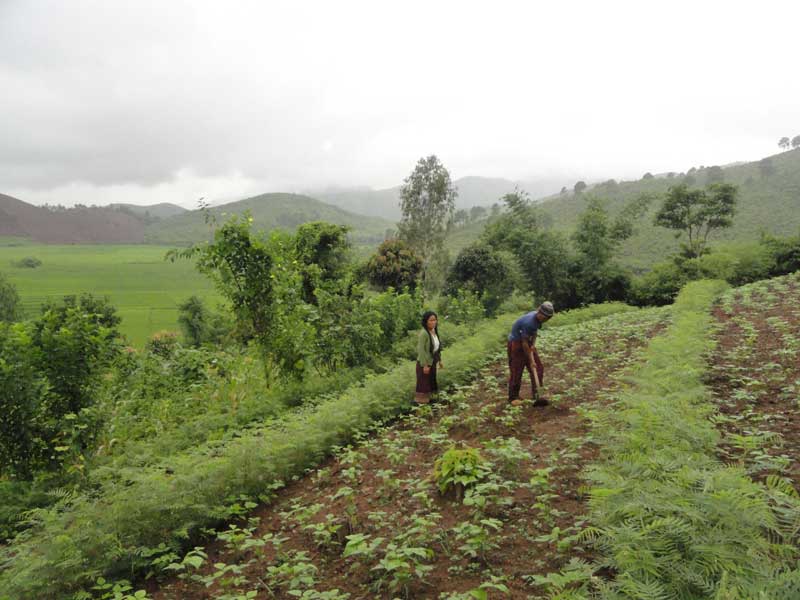Adopt SALT Technology- The only viable alternative to JHUM farming
Adopt SALT (Sloping Agricultural Land Technology)
“The only viable alternative to JHUM Farming”
 What is SALT?
What is SALT?
SALT (Sloping Agricultural Land Technology) is a package technology of soil conservation and food production, integrating differing soil conservation measures in just one setting. Basically, SALT is a method of growing field and permanent crops in 3-5 m wide bands between contoured rows of nitrogen fixing trees. The nitrogen fixing trees are thickly planted in double rows to make hedgerows. When a hedge is 1.5-2 m tall, it is cut down to about 75 cm and the cuttings (tops) are placed in the alleyways to serve as organic fertilizer.
Benefits of SALT?
As a proven system of upland farming, SALT has certain good qualities over both the traditional techniques of slash-and-burn and conventional terrace farming.
- The SALT system protects the soil from erosion.
- SALT helps restore soil fertility and structure.
- SALT is efficient in food crop production.
- SALT farming check forest fire
- SALT is environmental friendly
- SALT has the small family as its focus, and food production as the top priority–fruit trees, forest and other crops are secondary priority.
- SALT ensure permanent upland farming
- SALT is economically feasible.
- SALT is ecologically sound.
- The SALT farm can easily revert back to forestland if left unfarmed.
